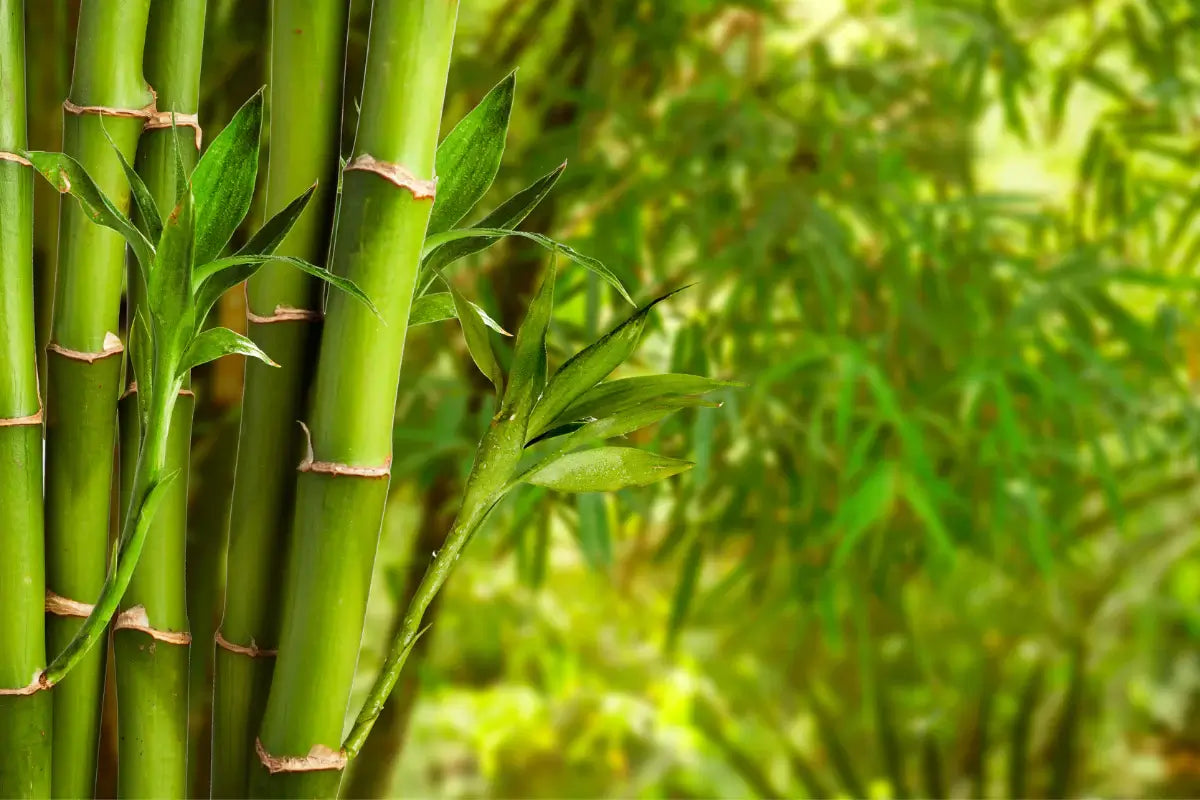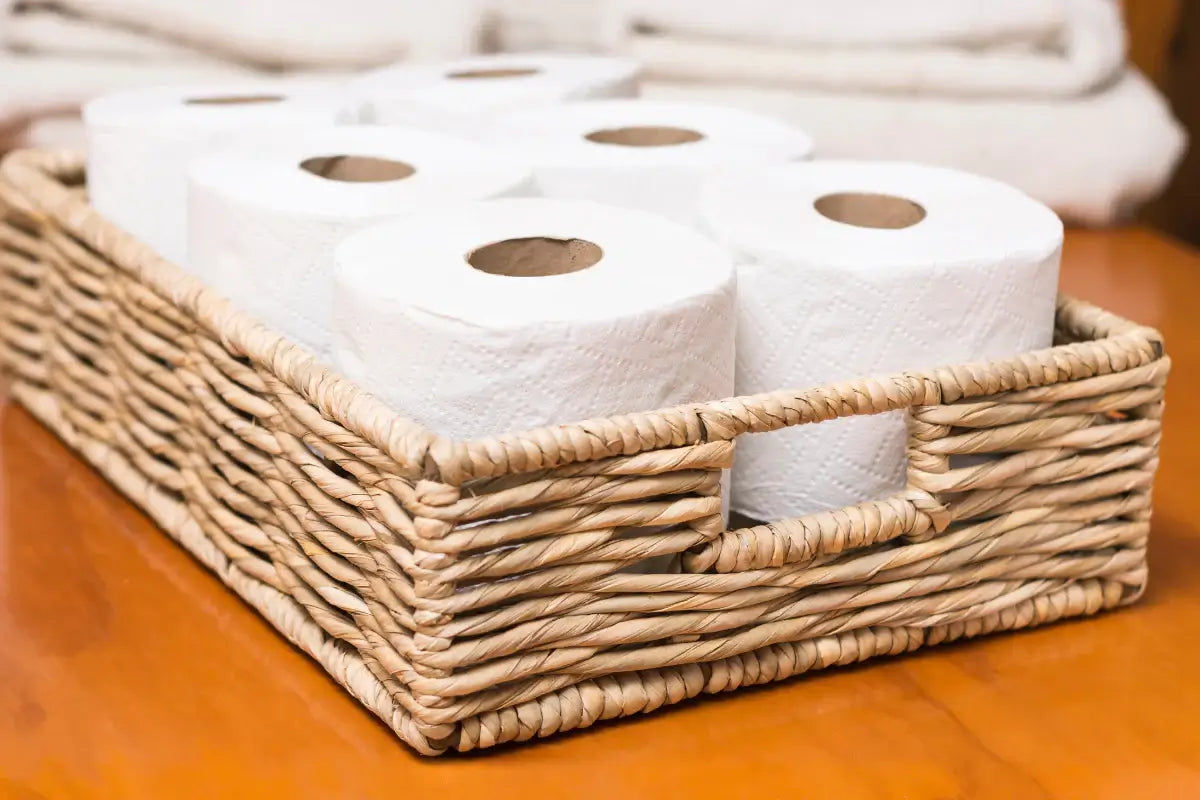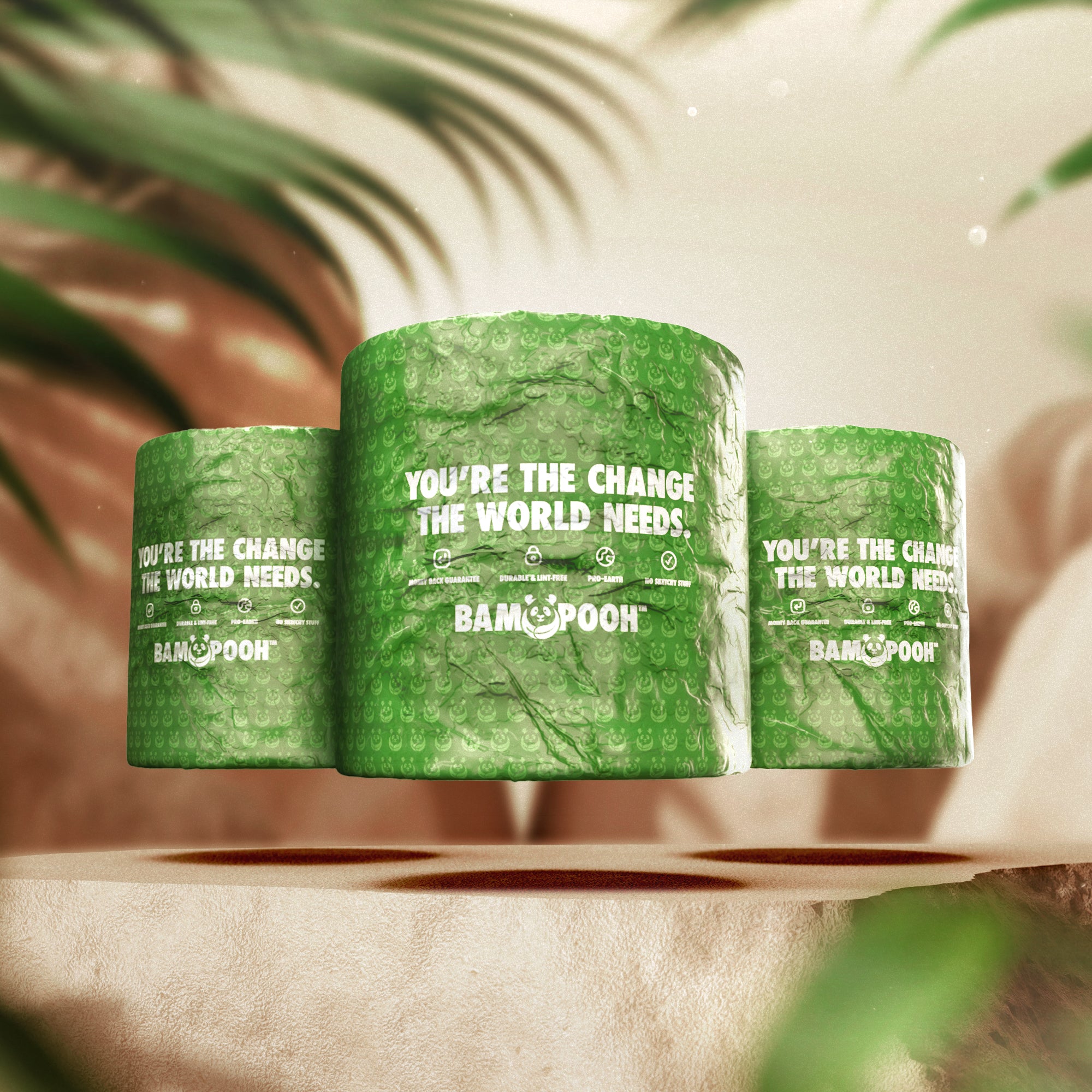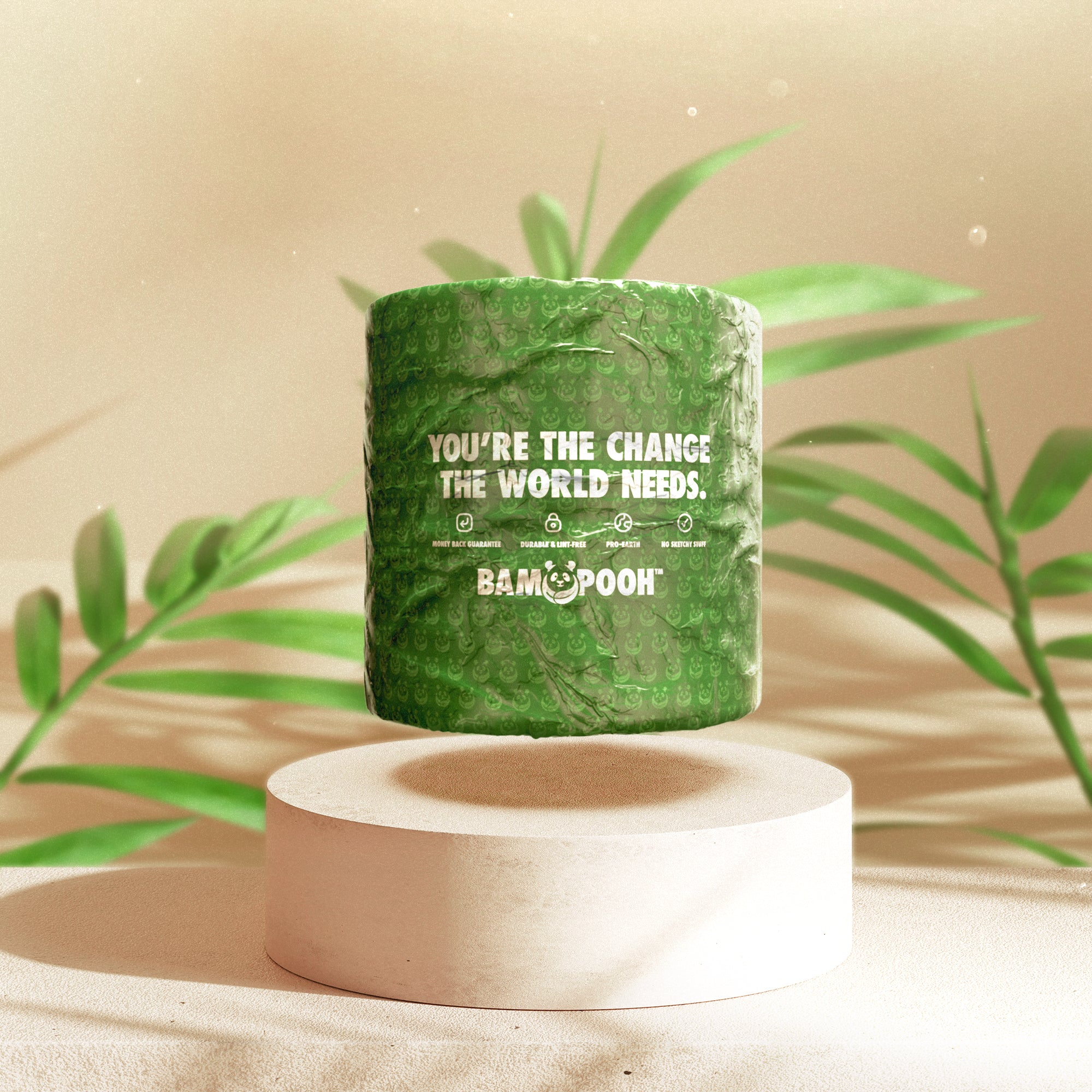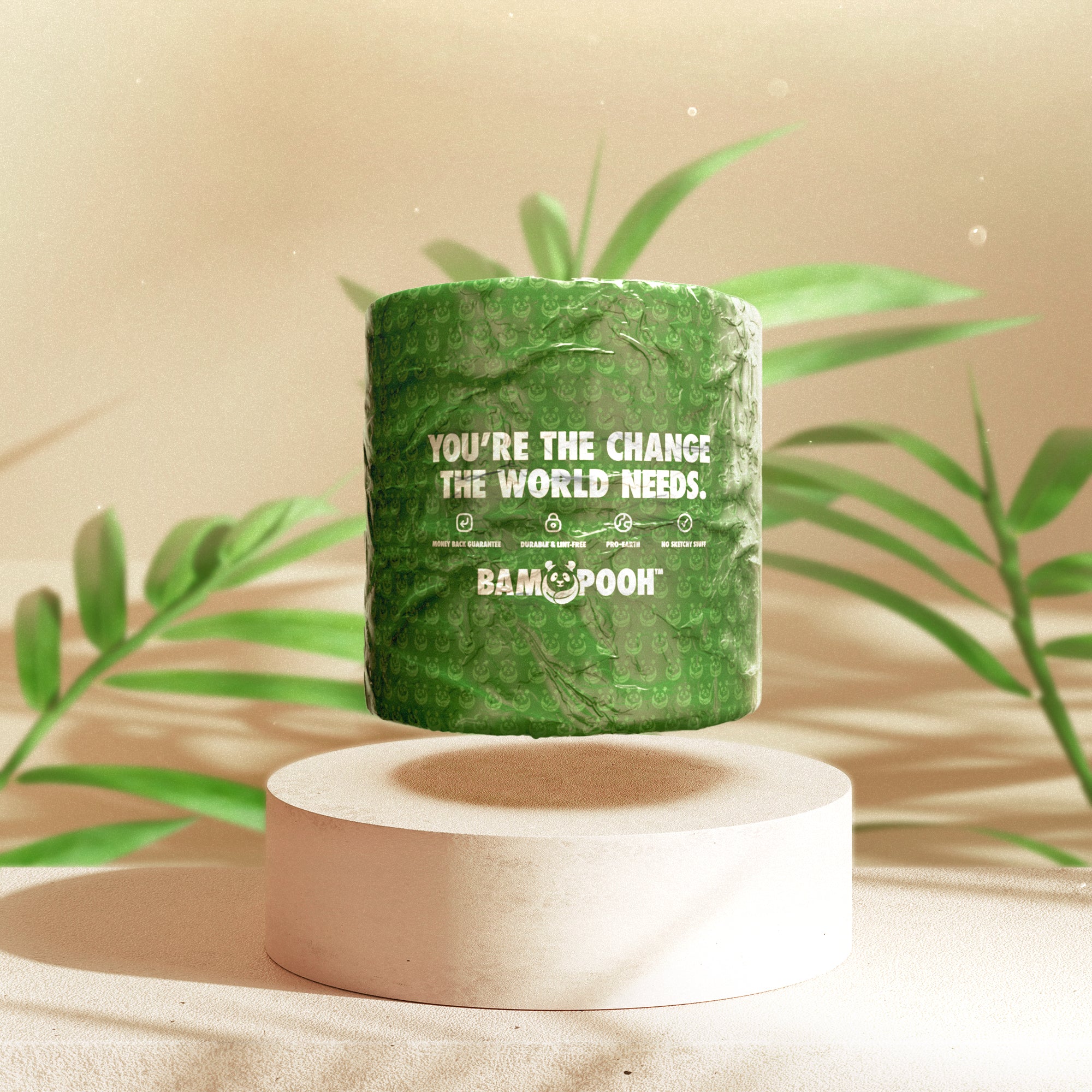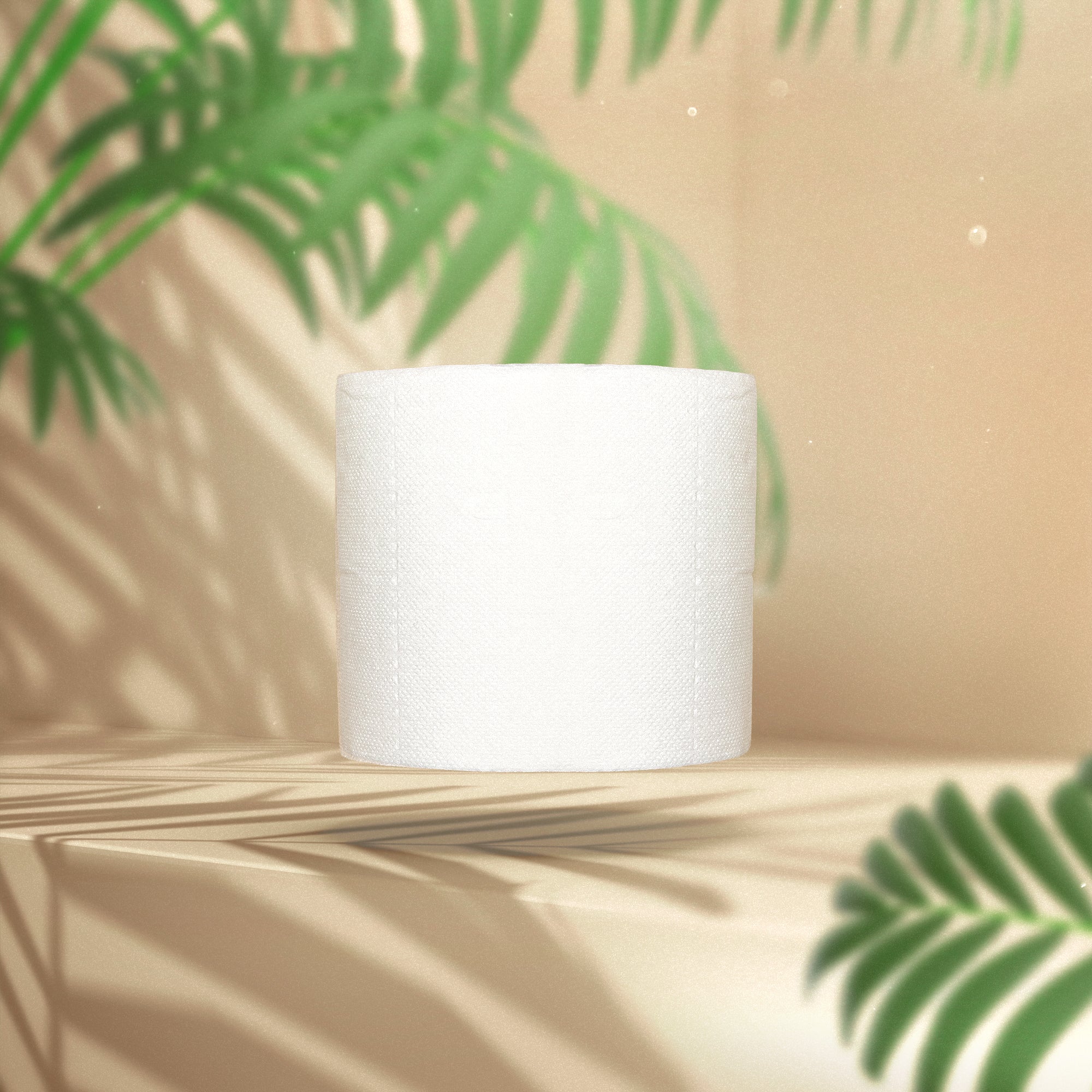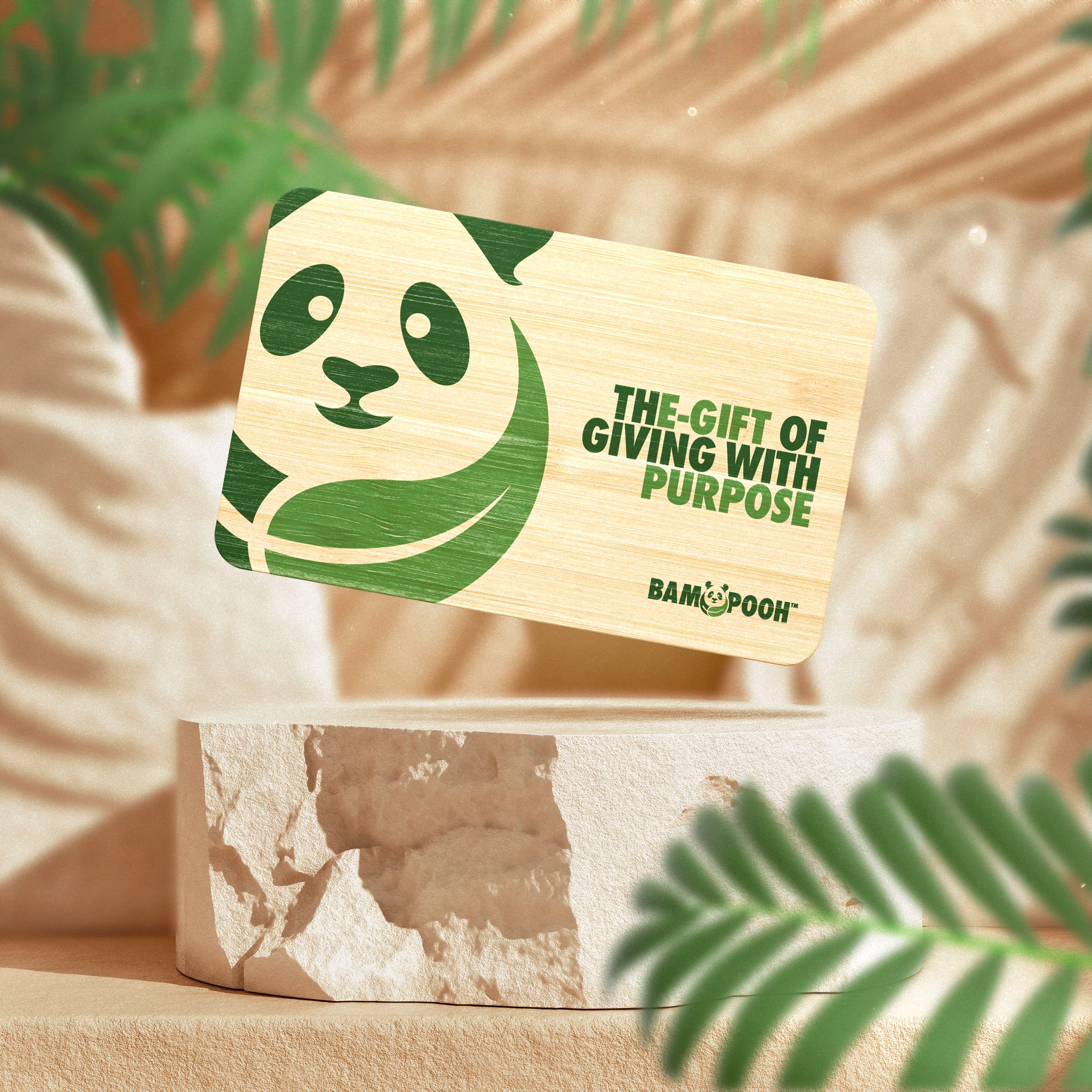For many, the transition from traditional to bamboo toilet paper raises a critical question - will it block the toilet? Let's cut through the ambiguity and dive into the facts.
Unlike conventional wood pulp toilet paper, bamboo toilet paper is designed to dissolve easily and quickly in water, making it ideal for different plumbing and septic systems.
The primary reason for this is the inherent structure of bamboo fibers. Bamboo fibers are short and lend themselves easily to disintegration in water, a feature that ensures they won't linger in your plumbing system. Instead, they break down swiftly and seamlessly, keeping your pipes clear and functioning.
But let's delve a bit deeper. What sets bamboo toilet paper apart in terms of dissolution and is it truly a worry-free option for your toilet? The answer lies in the manufacturing process, the unique attributes of bamboo, and the rigorous tests carried out to ensure its safe use in all systems.
Bamboo Toilet Paper is Designed for Easy Dissolution
The journey of bamboo toilet paper begins in responsibly managed forests where bamboo shoots are carefully harvested. The raw material then undergoes a thorough pulping process where the bamboo is converted into a soft, pliable pulp.
The pulp's texture is influenced by the duration and intensity of this process. The goal here is to strike a balance - ensuring the toilet paper is strong and durable when dry, yet quick to dissolve when wet. This delicate balance is a testament to the expertise and precision involved in the manufacturing process.
Once the pulping process is complete, the bamboo pulp is then turned into sheets of toilet paper. It's during this stage that the toilet paper's thickness, or 'ply', is determined. Bampooh's bamboo toilet paper is a 3-ply product. This means it's composed of three layers of bamboo pulp sheeting, making it strong, yet soft and absorbent.
However, don't let the 3-ply thickness fool you into thinking it won't dissolve easily. The unique qualities of bamboo and the meticulous production process ensure that once in water, the toilet paper breaks down effectively, regardless of its dry strength.
Testing for Toilet and Septic Safety
Manufacturers are well aware of the issues that can arise if a toilet paper product doesn't dissolve easily. Blocked pipes and compromised septic systems are problems no one wants to deal with. As such, rigorous testing procedures are in place to ensure that bamboo toilet paper is safe for all septic and plumbing systems.
In a typical dissolution test, a sheet of bamboo toilet paper is placed in a container of water and agitated. The goal is to see how quickly the paper disintegrates. Bampooh's bamboo toilet paper, for example, breaks down easily and quickly, minimizing the risk of blockages in your plumbing or septic system.
Does It Compromise Dissolubility?
When people hear about the strength and softness of bamboo toilet paper, they often wonder whether these attributes compromise the product's ability to dissolve. The answer is a resounding no. While bamboo toilet paper is indeed luxurious and soft, it doesn't mean it's tougher on your plumbing. The fibers used in bamboo toilet paper are naturally strong yet readily dissolve when exposed to water.
Just because a toilet paper feels thick and plush doesn't mean it's going to turn into a pipe-clogging wad. The quick breakdown of bamboo toilet paper is a result of the manufacturing process. Bampooh uses a process that retains the strength and softness of the fibers while ensuring they break down quickly once flushed.
The strength of bamboo toilet paper doesn't just translate into a more comfortable experience, it also means you use less paper. With bamboo toilet paper, a little goes a long way. You'll find you need fewer sheets than with traditional tree-based toilet paper, leading to less overall waste.
Why Bamboo Toilet Paper Doesn't Block Your Toilet
While the thought of blocked toilets can be a homeowner's nightmare, rest assured that bamboo toilet paper poses no such issues. In fact, the natural fiber structure of bamboo makes it highly soluble in water. As a result, it breaks down swiftly upon flushing, reducing the risk of clogging your pipes.
When it comes to septic safety, bamboo toilet paper shines. Its quick-dissolving nature makes it an excellent choice for homes with septic systems. It reduces the risk of blockages and overflows, which can be both inconvenient and costly to resolve.
Moreover, if you live in a rural area or rely on RV or boat facilities where septic safety is critical, bamboo toilet paper can be your best friend. Its natural and biodegradable properties ensure it breaks down effectively, thus protecting these sensitive systems.
So, is bamboo toilet paper safe for your plumbing? Absolutely. Not only is it safe, but it's also a more responsible choice, both for your home and the environment.
Understanding Bamboo Toilet Paper Versus Traditional Toilet Paper
For a holistic view, it's beneficial to contrast bamboo toilet paper with its traditional counterpart. Regular toilet paper typically comes from virgin trees, which means the deforestation of mature forests. The manufacturing process for such paper also involves large amounts of water and harsh chemicals like bleach.
On the other hand, bamboo toilet paper requires fewer resources and entails a cleaner production process. While regular toilet paper may appear cheaper at first glance, when factoring in the environmental costs, the story changes.
As for plumbing, traditional toilet paper is also known to cause blockages. Certain brands that offer very thick, quilted paper can take longer to break down. As a result, they can get caught in your pipes, leading to backups or clogs.
Bamboo toilet paper, as previously explained, excels at dissolving quickly and completely, thus circumventing such problems. Therefore, not only does bamboo toilet paper hold environmental advantages over traditional toilet paper, but it also outperforms in terms of plumbing safety.
The Positive Impacts of Switching to Bamboo Toilet Paper
When it comes to sustainable living, even the smallest change can have a substantial impact. Switching to bamboo toilet paper is one such modification that provides a ripple effect of benefits.
-
Reducing Carbon Footprint: Since bamboo absorbs more carbon dioxide compared to an equivalent stand of trees, using bamboo toilet paper helps in the fight against global warming.
-
Preserving Habitats: Cutting down forests for wood pulp threatens the habitats of countless species. By using bamboo toilet paper, you're directly contributing to the preservation of these vital ecosystems.
-
Lower Water Usage: Bamboo requires significantly less water than trees to grow. Plus, its production process also uses less water than traditional toilet paper manufacturing.
-
Avoiding Harmful Chemicals: Bamboo toilet paper is usually bleached using less harmful methods, which cuts down on the number of dangerous chemicals released into the environment.
-
Protecting our Future: Bamboo's rapid regrowth ensures a steady, sustainable supply for future generations. By choosing bamboo toilet paper, you're not just making a decision for today but are securing resources for tomorrow.
By switching to bamboo toilet paper, you're casting a vote for sustainable living, signaling to manufacturers the importance of eco-friendly products. Remember, every roll counts.
Understanding Septic Safety of Bamboo Toilet Paper
If you have a septic system, you might be wondering if bamboo toilet paper is a safe option. The good news is, bamboo toilet paper breaks down just as easily, if not more quickly, than traditional toilet paper.
-
Quick Dissolution: Tests have shown that bamboo toilet paper disintegrates faster than conventional toilet paper once flushed. This quick dissolution means less likelihood of blockages and more safety for your septic system.
-
Less Usage, Less Problem: Because bamboo toilet paper is more absorbent, people tend to use less of it. This reduction in volume is great for your septic system, reducing the strain and ensuring it functions more efficiently.
-
Biodegradability: Bamboo toilet paper is biodegradable. Its natural materials decompose quickly and completely, which is good news for your septic tank and the environment.
While bamboo toilet paper is safe for most septic and sewer systems, remember that the best practice is still to only flush what’s necessary, and dispose of the rest responsibly.
In conclusion, choosing bamboo toilet paper over traditional toilet paper is not just a decision that bodes well for the environment; it’s also a smart choice for the longevity and efficacy of your plumbing system. By making this simple switch, you’re ensuring a better, more sustainable future.
Switching to Bamboo Toilet Paper – A Key to a Sustainable Lifestyle
With its quick growth, sustainability, and lesser environmental impact, bamboo is increasingly being recognized as a viable alternative for various resources, one of which is toilet paper. More people are becoming aware of their daily habits and their impact on the environment, including the use of toilet paper.
-
Minimizing Forest Exploitation: Every year, millions of trees are cut down to meet the ever-increasing demand for toilet paper. These numbers are staggering, particularly when you consider that it takes about 30 years for a tree to grow back. Switching to bamboo toilet paper is a direct way to reduce our reliance on forests.
-
Carbon Neutral Shipping: As part of their commitment to sustainability, brands like Bampooh offer carbon neutral shipping. This means that any carbon emissions generated in the delivery process are offset through various initiatives like tree planting or investing in renewable energy projects.
-
FSC Certified: Bampooh’s bamboo toilet paper is Forest Stewardship Council (FSC) certified, which ensures that the bamboo used is sourced from forests that are responsibly managed, environmentally conscious, and socially beneficial.
In summary, bamboo toilet paper offers a way to care for the environment without sacrificing personal hygiene. Its use can contribute to less deforestation, reduce carbon footprint, and help you live a more sustainable lifestyle.



